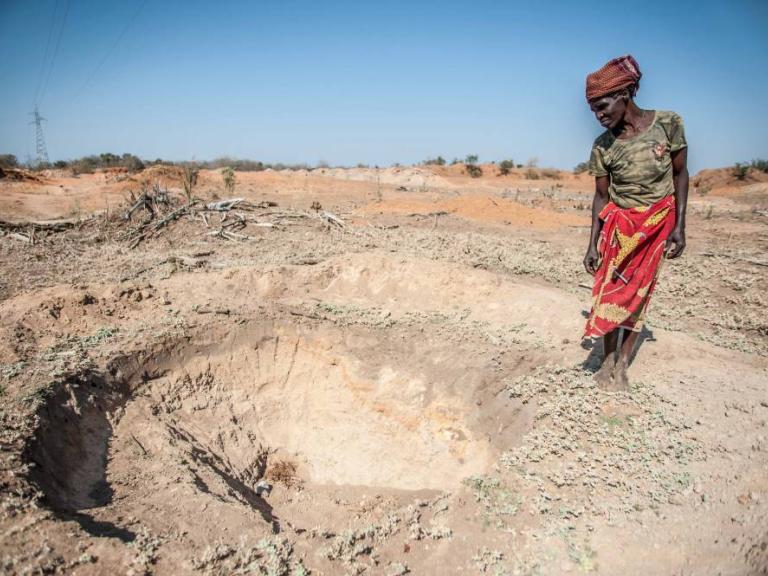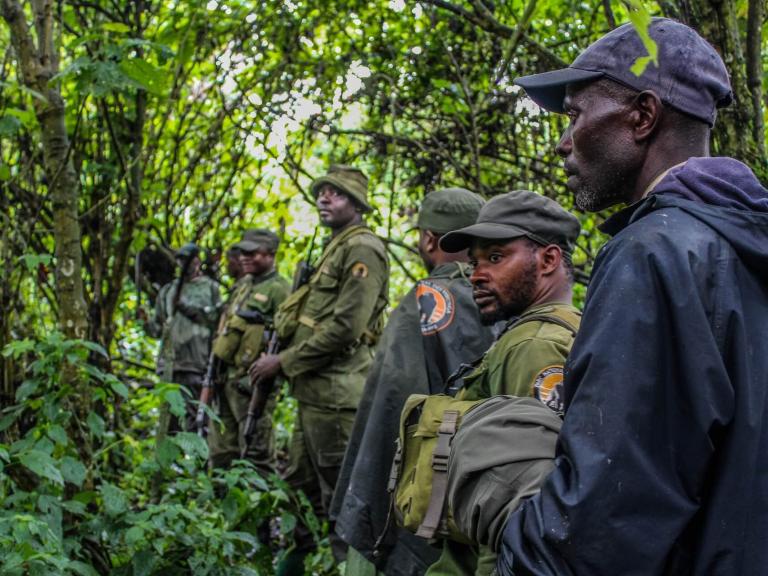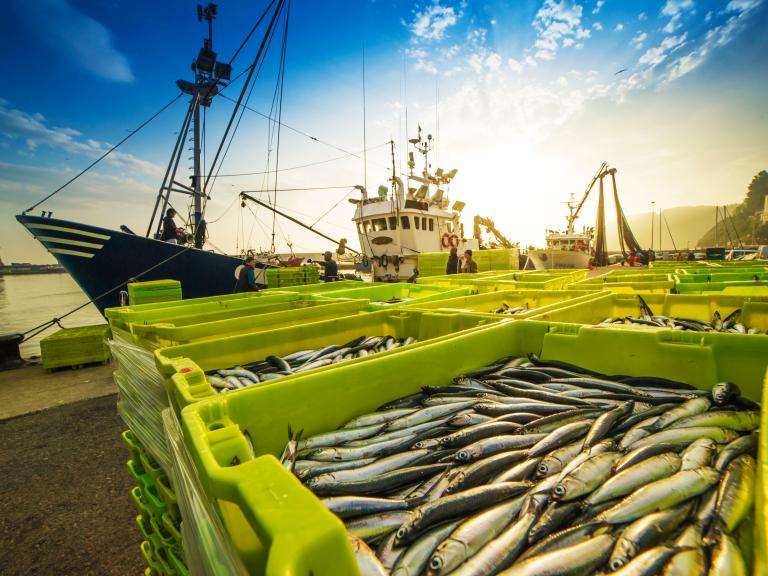-
Last updated on

'African youth versus climate change' panel at the Francophone Pavilion. A number of young people invited by Belgium participated (© Sakina Bawa).
At the invitation of Belgium, 8 young people from Senegal, Burkina Faso, Niger and Mali were able to participate in the recent climate summit in Sharm el-Sheikh. Afterwards, they spoke with elation about this particularly instructive experience.
Belgium wants to help vulnerable countries equip themselves to withstand the effects of climate disruption. One of the programmes it has brought into being is a climate partnership with 4 countries from the Sahel – Senegal, Burkina Faso, Niger and Mali. In those countries, thanks to the involvement of the Belgian development agency Enabel, one of the things Belgium will do is to contribute to projects including the Great Green Wall, an ambitious initiative that aims to combat the further desertification of precious natural and agricultural land.
8 climate activists
The Sahel Climate Partnership also focuses on young people. After all, they will be the ones who will suffer the most from the effects of the changing climate. Therefore, at the suggestion of Development Minister Meryame Kitir, two young people for each country involved participated in COP27, the climate summit in Sharm el-Sheikh. And this because it is crucial to get African youths more involved in the climate decision-making process and make their voices heard there.
Through Enabel and our posts on the ground, two young people who are actively working on environmental and climate issues were selected from each country. One of the conditions, however, was that they would form an integral part of the official climate delegation of the countries involved. At the COP itself, they were met by Enabel and a member of staff from Minister Kitir's office.
One of the young people selected was Balkissa Daoura from Niger, who for several years has been the project leader of Young Volunteers for the Environment (JVE), an organisation that works with vulnerable young people in areas such as land restoration, urban forestation, plastic pollution and environmental education. Another participant was Yero Sarr, founder of the Senegalese branch of Fridays for Future Senegal, a movement that calls on young people to participate in demonstrations against climate change every Friday.
Panels
What impression did taking part in a major event like COP27 have on them? All the young people invited expressed gratitude that they were able to attend and found it a rich and unforgettable experience. All of them commented that COP27 offered them a unique opportunity to get to know other young climate activists from around the world. They were also able to meet experts and sit on various panels, either as participants, organisers or moderators and had an opportunity to express their views and talk about their activities.
Nia Sidonie Christiane Ouattara, for example, represented Burkina Faso on a panel concerning the topic 'Women and Climate Challenges in Africa', where she was joined around the table by young people from Senegal and Chad. "That provided a unique opportunity to share my experience and my commitment to the environment," she says with satisfaction. Ouattara is in charge of the ‘Environment and sustainable development’ section of the African Youth Initiative for Development association.

The Sahel youths invited by Belgium (© Enabel).
Meeting with their own governments
"I also learned a lot about how negotiations are conducted at a COP," she adds. "For example, I attended a negotiation session on ‘Loss and damage’ (editor's note: this was the main topic of this COP). Along with the other young people from the Sahel, I spoke with an expert negotiator from ECOWAS, the Economic Community of West Africa. My presence at COP27 clearly allowed me to hone my capabilities in leadership, entrepreneurship, innovation and solidarity. We even decided to set up an association of young people from the Sahel as a means of articulating our concerns even more effectively."
Not insignificantly, the young people invited were also able to meet the governments of their own countries, especially the negotiators and the political and administrative representatives involved in the environment. This led to inspiring exchanges that taught them a great deal about ways they can achieve a greater impact with their campaigns. "What can we, as young people, do to enable negotiations to proceed more smoothly and how can we have more impact with the population? These were the issues we discussed during our meetings," said Sakina Bawa from Niger, Vice-Chair of the NGO Save the Nature Against Climate Change.
"We young people must lead the fight"
Whatever their experiences, all of the young people invited are delighted that they were able to take part. "All the meetings we had at COP27 taught us that climate change affects everyone and that we young people must lead the fight to slow down climate change," concludes Bawa. "After all, we are the future and the future rests on our shoulders. Especially in the Sahel, where rare rains, floods and drought affect many young people and women, because they are the first victims. That is why as young people, our role is to influence the decision-makers to act more quickly."
One of the participants from Mali, Adama Sissoko, was tasked with publicising the activities of the Sahel youth via the media (Malian television, YouTube, TikTok, Facebook, etc.). He managed to conduct a considerable number of interviews, including with Youba Sokona, Vice-Chair of the Intergovernmental Panel on Climate Change (IPCC). He was also able to network intensively with other African communicators such as journalists, bloggers and influencers. "Judging by the comments and responses received, my reporting on the media enabled people located outside the city of Sharm el-Sheikh and within Africa as a whole to engage with the COP27," says Sissoko with satisfaction.
Another highlight was certainly the interview of Senegalese participant Yero Sarr on BBC Africa. There, he got the chance to share his views on the course of COP27 in front of a wide audience.
Some expressed a desire to take part in subsequent climate summits as well. Whatever happens, Belgium is planning to continue strengthening the participation of young people within the international climate debate in the future.
The 3 other participants were Fatoumata Boubou (Mali), Ndeye Dieng (Senegal) and Hamado Rabo (Burkina Faso).
More on Planet

COP27: An African climate summit with an African angle
The 27th climate summit (COP27) in Sharm el-Sheikh, Egypt, 6-18 November 2022, will primarily focus on the laments of poorer cou...

Africa: cutting corruption and environmental crime to protect nature
Products such as ivory, bushmeat and tropical timber continue to be traded illegally. Moreover, it often involves corruption. Be...

Harmful fisheries subsidies are curbed
In June 2022, the World Trade Organization (WTO) reached a partial agreement to end harmful fisheries subsidies, a successful in...
